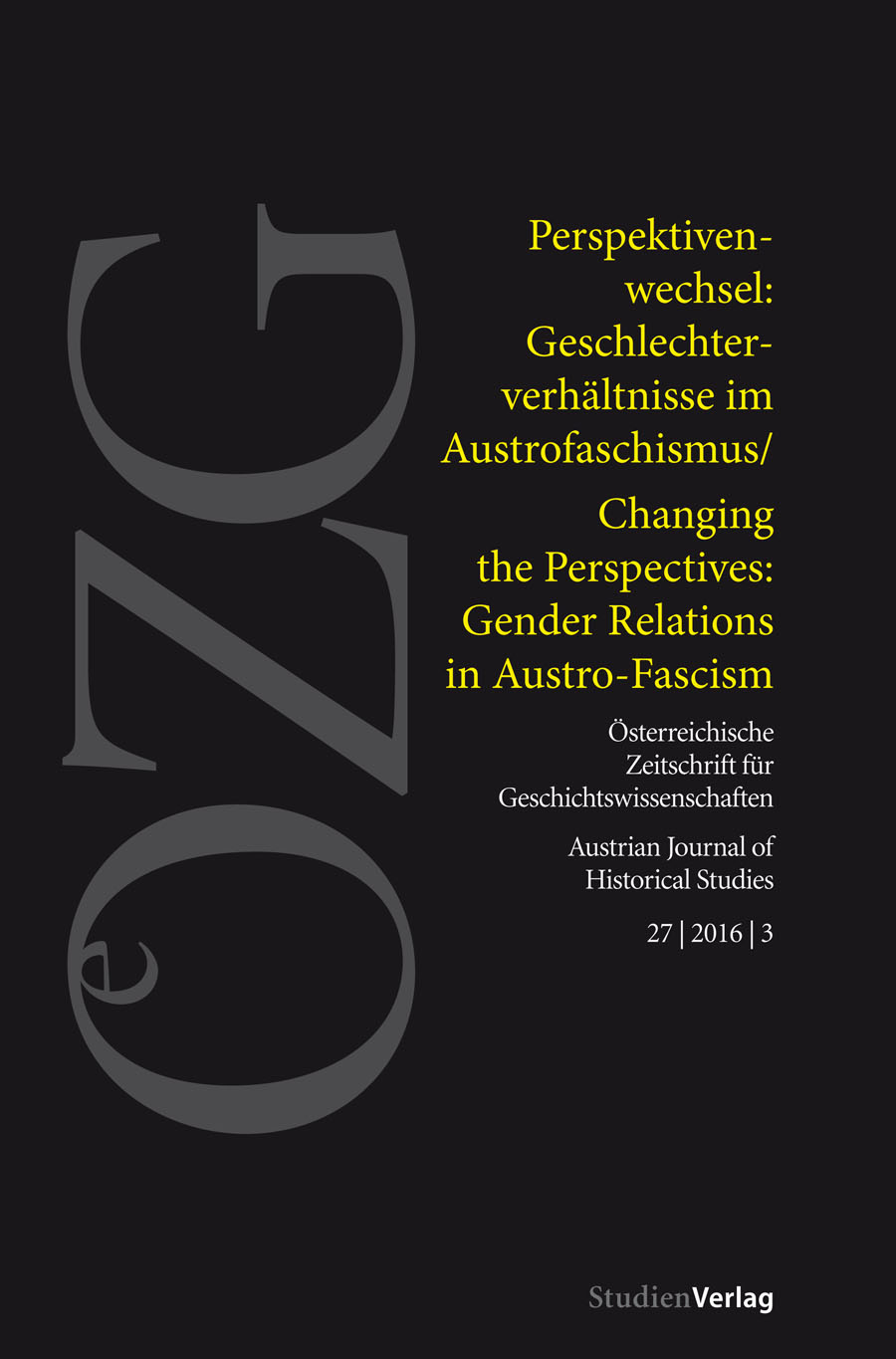Hausfrauen und Mütter im Austrofaschismus
Gender, Klasse und Religion als Achsen der Ungleichheit
DOI:
https://doi.org/10.25365/oezg-2016-27-3-3Schlagworte:
Dollfuß-Schuschnigg regime, Austro-Fascism, Vaterländische Front, Conservative women’s movement, Maternity protection, Di erential gender concept, Gender policiesAbstract
The Austro-fascist goal of re-Catholicizing society entailed the restoration of a highly hierarchical gender order, resulting in legal discrimination against women. This article analyzes how the two women’s organizations that existed within the Austro-fascist unity party Vaterländische Front responded to the regime’s gender policies. Both organizations, Mutterschutzwerk (headed by former journalist Mina Wolfring) and Frauenreferat (headed by Countess Franziska Starhemberg, president of the Catholic women’s organization), specifically targeted housewives and mothers on the basis of their politics of gender difference. Using three axes of inequality – class, gender and religion – as an analytical tool, the article highlights how gender and class differences were conceived and implemented within the context of a Catholic and politically authoritarian system.


